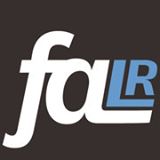Nearly a year after an advertisement on Chapel Hill city buses sparked controversy, the City of Raleigh is experiencing its own public outcry over transit advertising. The Humane Society of the United States has filed suit against the Raleigh Transit Authority over the agency’s rejection of an advertisement featuring pigs in confined gestation crates used on factory farms.
The proposed ad would have wrapped around the exterior of buses and said, “How would you like to spend the rest of your life in a space as small as a bus seat? It’s what Big Pork wants for pigs. But together we can change that.” The Raleigh Transit Authority rejected the ad because it was “too negative.”
The complaint, filed in the U.S. District Court for the Eastern District of North Carolina, alleges that the Raleigh Transit Authority’s rejection of the ad is a violation of the Humane Society’s First and 14th Amendment rights. Under the RTA advertising policy, some ads are prohibited, including those for illegal products or services, alcohol or tobacco, or advertisements that are false or misleading. Additionally, advertisements that deal with political issues, causes, or candidates, or that advocate or oppose a particular religion, belief, or creed, are not permitted.
But what about advertisements that are simply “too negative”? There is nothing in the RTA policy about the agency’s authority to reject advertisements based on their negative messages. Emails between the RTA and the Humane Society show that the rejection took place because the ad was “too negative,” not because it was a political issue or cause. That puts the RTA in a pinch, because its decision to reject the ad was not in line with its own policy. However, one question that will need to be addressed is whether the Humane Society’s advertisement could fit into the political issues/causes category of prohibited advertisements. If the better treatment of pigs is an example of a political cause, then the RTA could refuse to accept the advertisement, and doing so would be in line with RTA policy. But that’s not what happened. The RTA refused the ad because the agency was uncomfortable with the negative tone of the Humane Society’s message.
The Supreme Court has dealt with the issue of transit advertising and the First Amendment only once, in Lehman v. City of Shaker Heights (1974). In that case the Court held that a public forum had not been created in Shaker Heights, Ohio, buses, and that the city’s refusal to permit a political candidate advertisement was constitutional. However, the Supreme Court also has been clear that governments may not discriminate against speech based on viewpoint.
Controversial transit advertisements have been popping up across the nation over the past few years, with several cases going before federal courts in Washington, D.C., California, and Pennsylvania. The subjects of these ads have ranged from Israel to Islam to inmate voting rights. Two recent federal district court opinions explored viewpoint discrimination as it applies to transit advertising, concluding that the refusal to permit ads calling for support of Israel was unconstitutional viewpoint discrimination.
The ad in question in Raleigh already has been featured on buses in Des Moines, Iowa, and Washington, D.C. “without controversy,” according to the Humane Society. The ads’ impact in North Carolina could be significant, however, since N.C. is second in the nation in pork production.
To read more about the contentious transit ads in Chapel Hill last year, see this blog post on the issue.
Liz Woolery is a third-year Ph.D. student studying legal and regulatory issues in mass communication at the UNC School of Journalism and Mass Communication.




